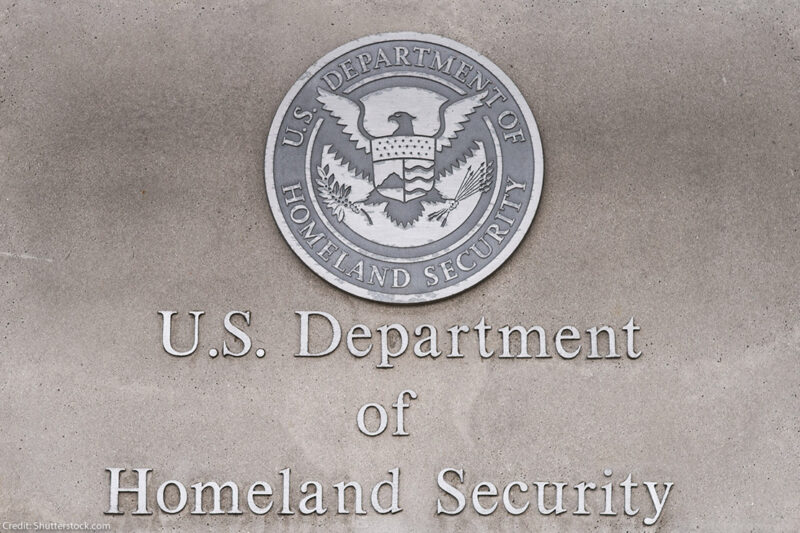New National Security Programs, Same Old Dangerous Patterns


The government has long infringed on Americans’ fundamental rights and liberties under the guise of national security. From the FBI’s surveillance of Dr. Martin Luther King, Jr. to the round-up of innocent people simply because they were perceived to be Muslim after 9/11, new initiatives to address real or perceived national security concerns have inevitably and disproportionately impacted communities of color and immigrants. Over the past two decades especially, we’ve seen how domestic counterterrorism policies target Black, Brown, and Muslim communities for unmerited surveillance and investigation, trampling their freedoms of expression and association. Now the government is at it again — under a new name and a new bureaucracy — and is stonewalling our attempt to learn more about what it is up to this time around. So we’re suing.
Last year, the Department of Homeland Security (DHS) announced new measures to address domestic violent extremism, with a focus on violent white supremacy. It established a Center for Prevention Programs and Partnerships and a domestic terrorism branch within the Office of Intelligence and Analysis. In its press statement, DHS described this effort as a “whole-of-society” approach, including collaboration across every level of government, the private sector, non-governmental organizations, and communities.
We’ve previously explained that in responsibly addressing white supremacist violence, policymakers need to ensure that the broad powers federal agencies already have (or claim to have) do not violate the civil rights, liberties, and privacy — of all of us. DHS and other agencies have consistently viewed American communities through a threat-based security lens, targeting and harming Black, Brown, and Muslim people, as well as other marginalized communities, in the name of “national security.”
For example, the Obama administration launched a program that cast unwarranted suspicion on Muslims by utilizing a deeply flawed approach: it called on social service providers and community members to identify potentially “extremist” individuals based on vague and broad criteria that encompassed lawful speech and association. They targeted young people and schools, giving recommendations to schools on how to police for signs of radicalization, all of which undermined young people’s ability to express themselves and encouraged teachers and other students to view their peers as inherently suspicious. Under the guise of community outreach, the Federal Bureau of Investigations also targeted mosques for intelligence gathering and pressured law-abiding American Muslims to become informants against their own communities.
These programs flagged innocent behavior — such as religiosity, political activism, and mistrust of law enforcement — as indicators of radicalization. The Trump administration followed this model and created the Office of Targeted Violence and Terrorism Prevention, raising the same acute concerns for communities of color and immigrants who were targets of that administration’s xenophobic and racist policies.
DHS’s latest efforts appear to continue these harmful programs and use similar frameworks and methods such as “threat assessments” intended to detect “risk factors for radicalization to violence,” without clear guidelines, definitions, or safeguards to protect civil rights and civil liberties. We’ve seen this story before.
Two months ago, we filed a Freedom of Information Act request seeking information about these initiatives. We wanted to know DHS’s plan to safeguard civil liberties, rights, and privacy, or whether they even had one. But we’ve been met with silence. We know that further expansion of national security systems can harm the very communities they say they’re trying to help, which is why we’re asking for details. Our concerns are heightened by the fact that DHS still uses guidance that pretends to prohibit bias, but includes loopholes permitting bias-based profiling in the context of national security and immigration. This gives law enforcement express permission to discriminate on the basis of race and disproportionately target marginalized communities.
In fact, DHS has been the first to admit that its own ability to address domestic violent extremism is hampered by the fact that it has not formulated an official definition of “domestic violent extremist,” offered guidance about what constitutes domestic violent extremism, or provided training for those tasked with identifying violent extremism. This, to say the least, is a problem.
Even if the government is engaging in a good-faith effort to stanch white supremacist violence inside the United States, recycling the same abusive frameworks that have been used against communities of color for decades is not the solution. Without more insight about what DHS intends to do and why, it is difficult for the public to put stock into strategies that are all too familiar. We deserve to know more.
Stay informed
Sign up to be the first to hear about how to take action.
By completing this form, I agree to receive occasional emails per the terms of the ACLU's privacy statement.
By completing this form, I agree to receive occasional emails per the terms of the ACLU's privacy statement.

